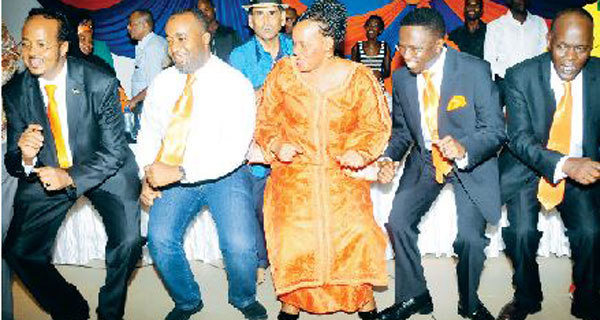×
The Standard e-Paper
Kenya’s Boldest Voice
 |
| From left: ODM aspirants Adan Keynan (national vice chairman), Hassan Ali Joho (national chairman), Rosa Buyu (organising secretary), Ababu Namwaba (secretary general) and Simon Ogari (national treasurer) dance during a meeting with Coast delegates at the Nyali International Beach Hotel on Wednesday night. PHOTO: GIEDEON MAUNDU/STANDARD] |
BY JAMES MBAKA
Raila Odinga’s Orange Democratic Movement’s delegates Friday hold elections with potential to put behind them the sting of last year’s second electoral defeat and get on the launch pad for the 2017 presidential race.